Abstract
OBJECTIVES: This study examined the claim incidence rate, cost, and industry distribution of work-related upper extremity disorders in Washington. METHODS: Washington State Fund workers' compensation claims from 1987 to 1995 were abstracted and categorized into general and specific disorders of gradual or sudden onset. RESULTS: Accepted claims included 100,449 for hand/wrist disorders (incidence rate: 98.2/10,000 full-time equivalents; carpal tunnel syndrome rate: 27.3), 30,468 for elbow disorders (incidence rate: 29.7; epicondylitis rate: 11.7), and 55,315 for shoulder disorders (incidence rate: 54.0; rotator cuff syndrome rate: 19.9). Average direct workers' compensation claims costs (medical treatment and indemnity) were $15,790 (median: $6774) for rotator cuff syndrome, $12,794 for carpal tunnel syndrome (median: $4190), and $6593 for epicondylitis (median: $534). Construction and food processing were among the industries with the highest rate ratios for all disorders (> 4.0). CONCLUSIONS: Upper extremity disorders represent a large and costly problem in Washington State industry. Industries characterized by manual handling and repetitive work have high rate ratios. The contingent workforce appears to be at high risk.
Full text
PDF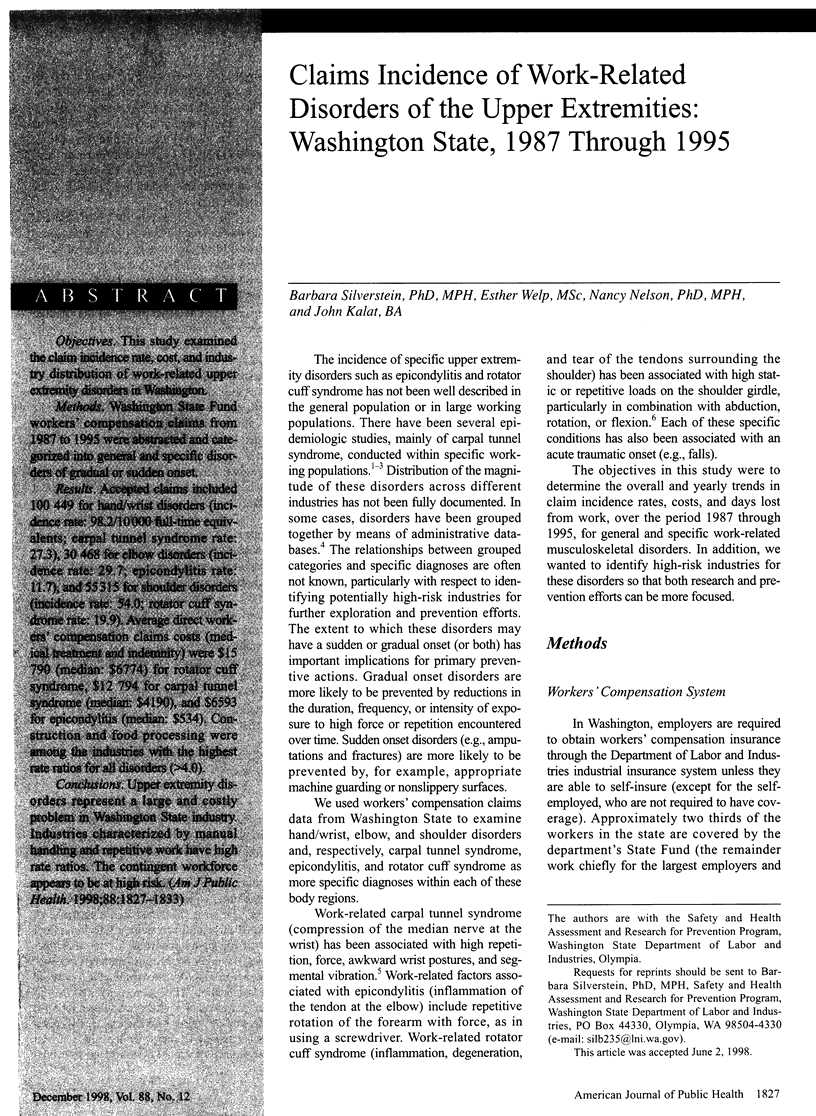
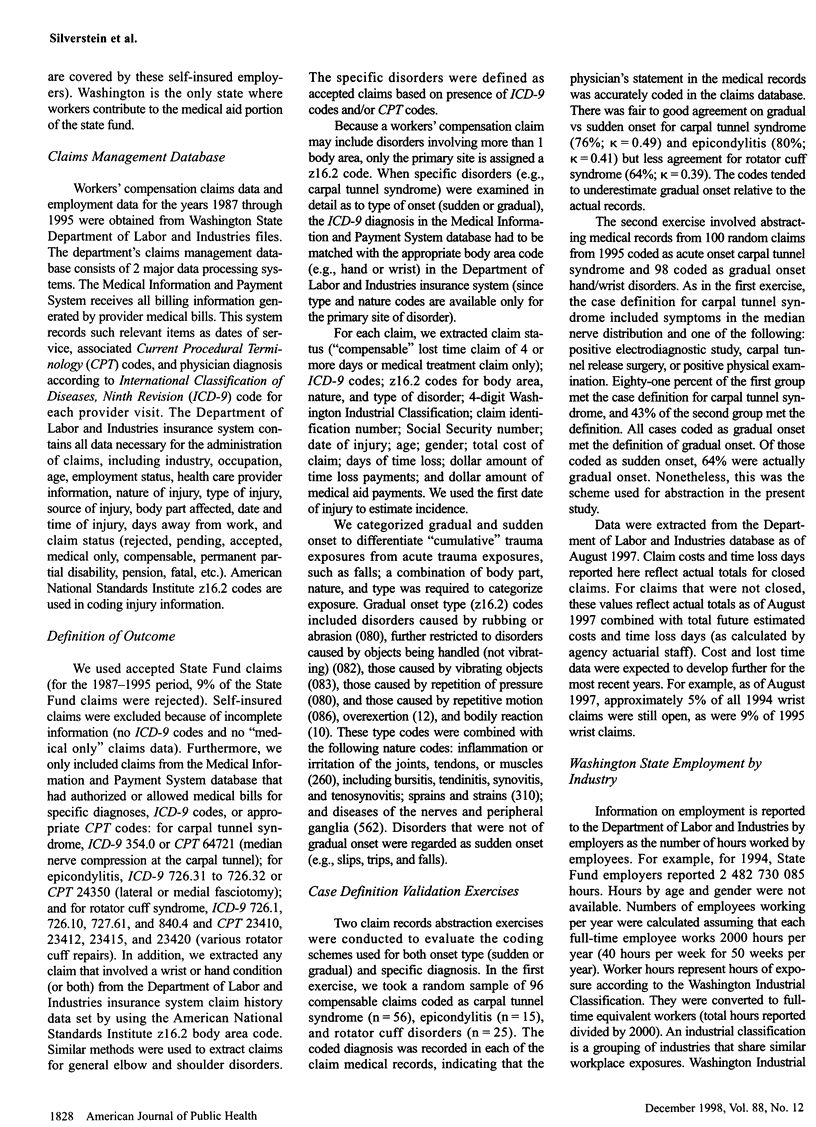
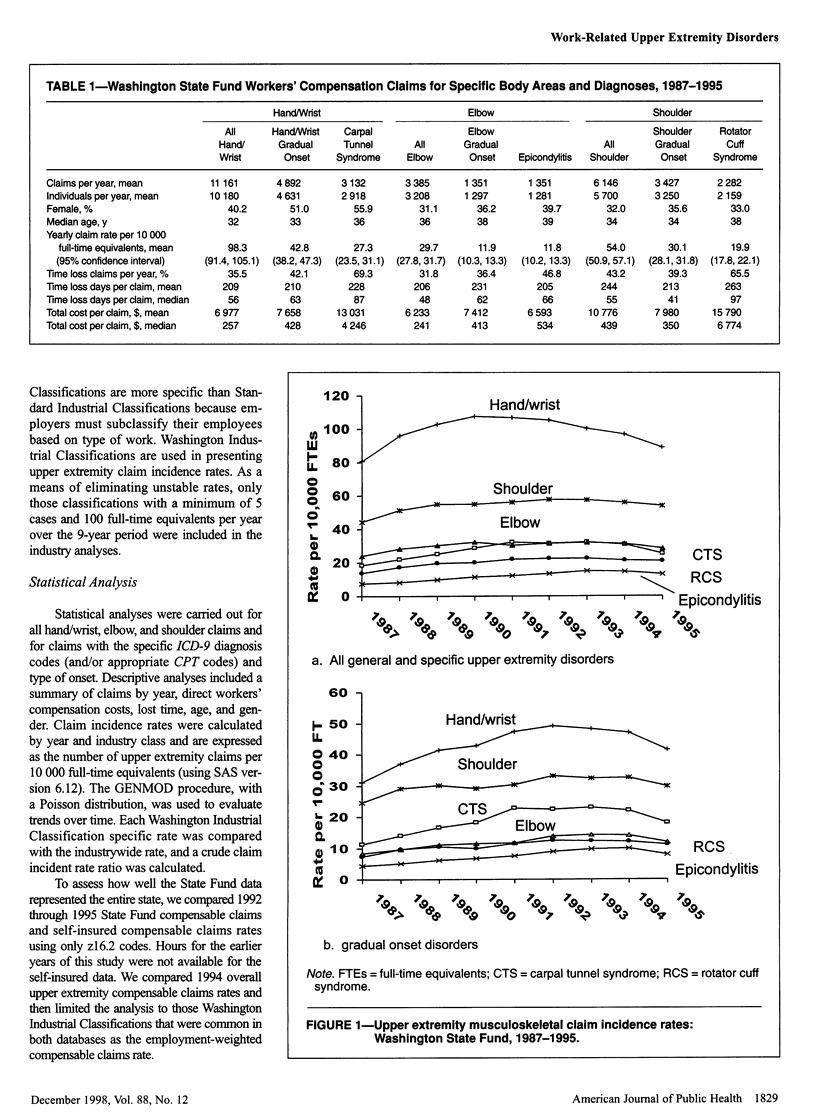
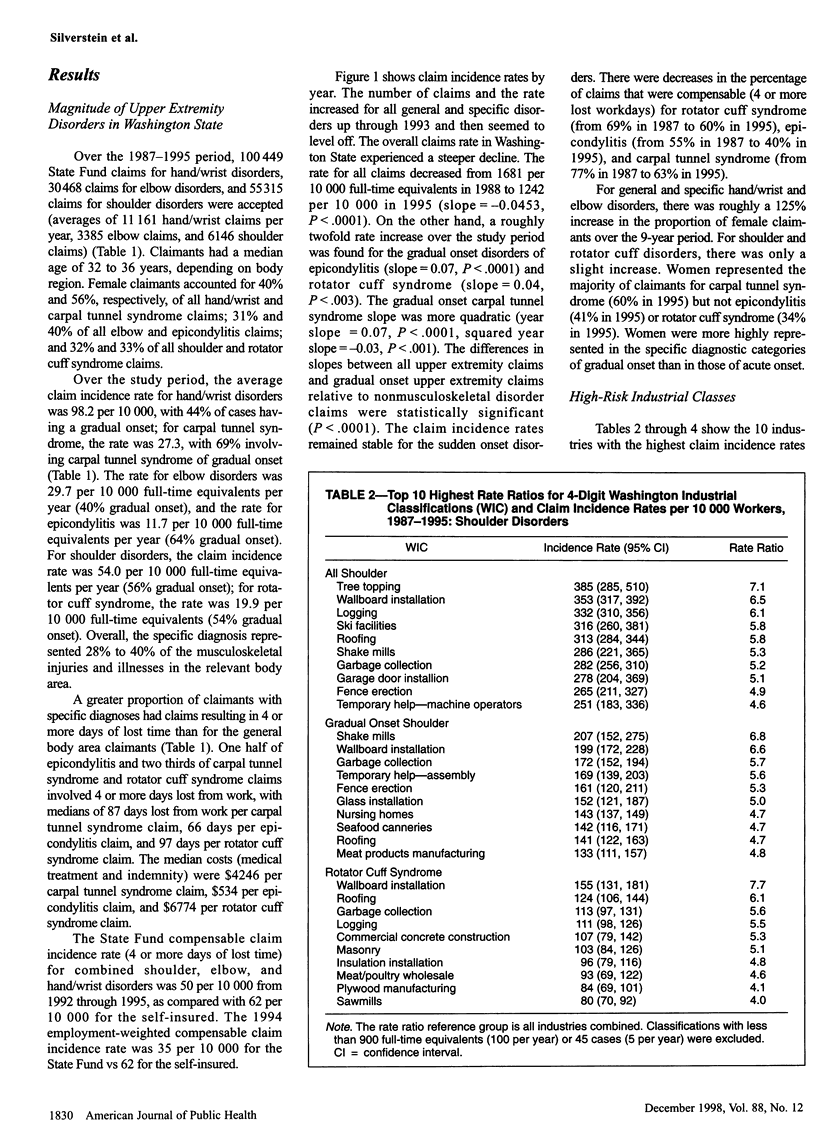
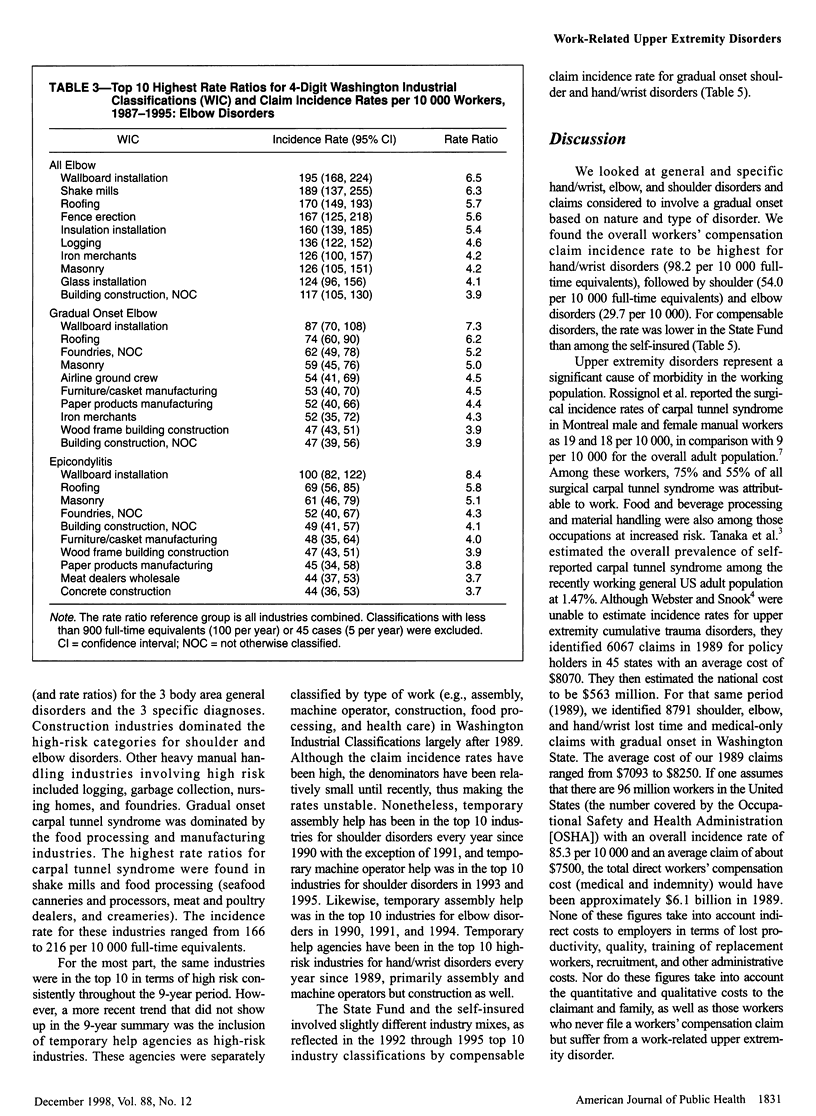
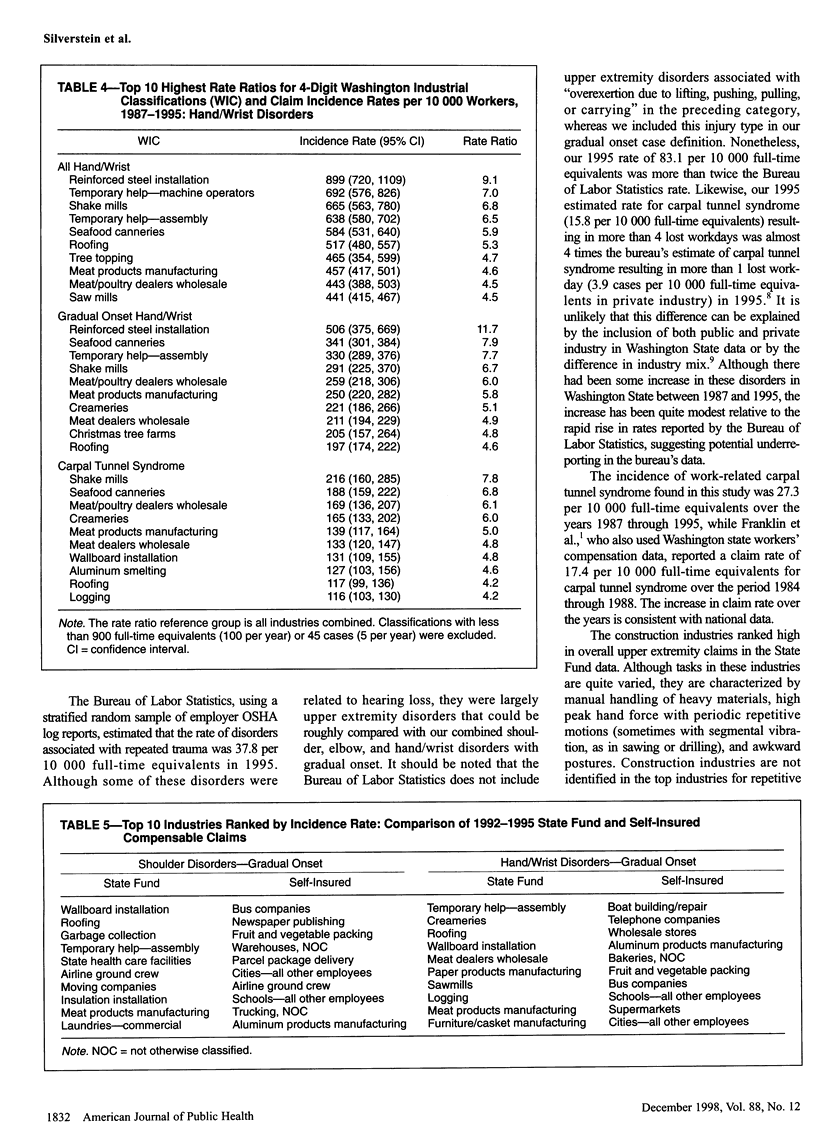
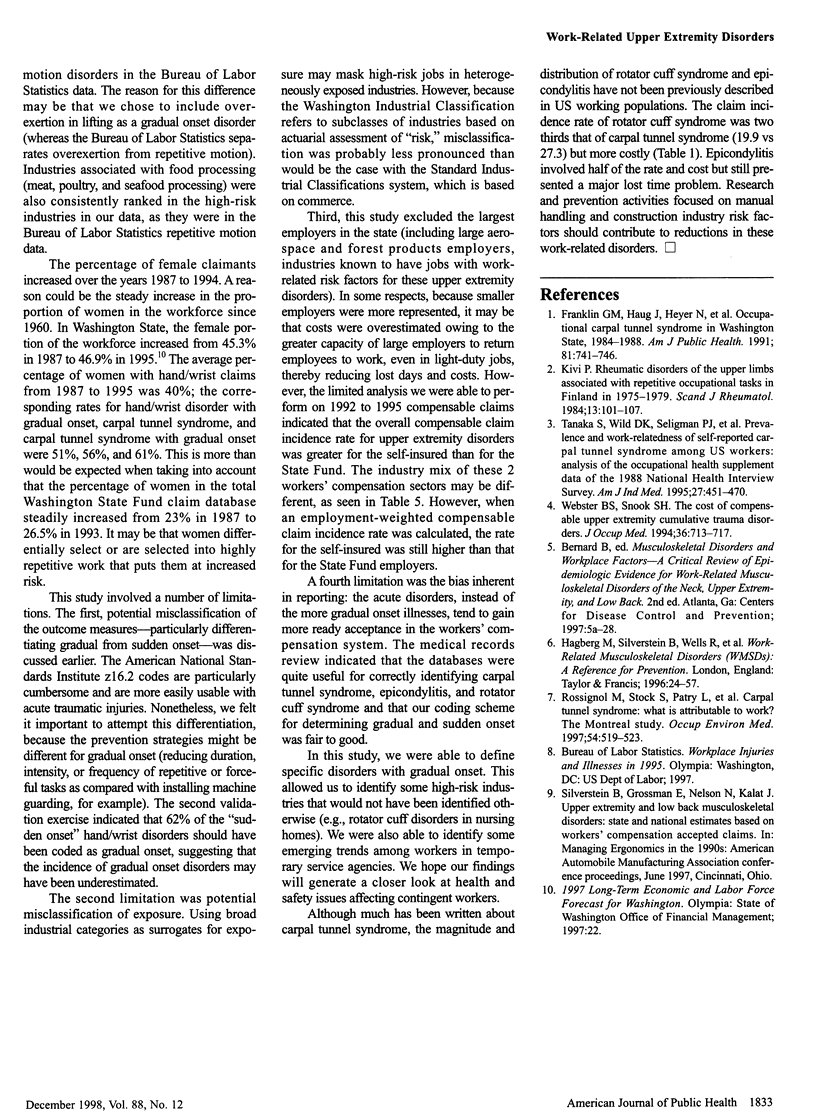
Selected References
These references are in PubMed. This may not be the complete list of references from this article.
- Franklin G. M., Haug J., Heyer N., Checkoway H., Peck N. Occupational carpal tunnel syndrome in Washington State, 1984-1988. Am J Public Health. 1991 Jun;81(6):741–746. doi: 10.2105/ajph.81.6.741. [DOI] [PMC free article] [PubMed] [Google Scholar]
- Kivi P. Rheumatic disorders of the upper limbs associated with repetitive occupational tasks in Finland in 1975-1979. Scand J Rheumatol. 1984;13(2):101–107. doi: 10.3109/03009748409100371. [DOI] [PubMed] [Google Scholar]
- Rossignol M., Stock S., Patry L., Armstrong B. Carpal tunnel syndrome: what is attributable to work? The Montreal study. Occup Environ Med. 1997 Jul;54(7):519–523. doi: 10.1136/oem.54.7.519. [DOI] [PMC free article] [PubMed] [Google Scholar]
- Tanaka S., Wild D. K., Seligman P. J., Halperin W. E., Behrens V. J., Putz-Anderson V. Prevalence and work-relatedness of self-reported carpal tunnel syndrome among U.S. workers: analysis of the Occupational Health Supplement data of 1988 National Health Interview Survey. Am J Ind Med. 1995 Apr;27(4):451–470. doi: 10.1002/ajim.4700270402. [DOI] [PubMed] [Google Scholar]
- Webster B. S., Snook S. H. The cost of compensable upper extremity cumulative trauma disorders. J Occup Med. 1994 Jul;36(7):713–717. [PubMed] [Google Scholar]


